How to build a house for under £150,000
Building your own home is likely to be the largest expenditure of your life, but it doesn’t need to be prohibitively expensive. Many self-builders have managed to build a home that meets their needs for under £150,000.
But in order to bring your dream to life on a tight budget, you need to make some sensible choices. Here are some practical tips to keep a handle on your costs throughout your project, keeping costs low without compromising on quality.
1. Build a small house to keep costs down
The first piece of advice on building a house for under £150,000 is by building a relatively small one. The bigger the house, the more bricks, flooring, roof tiles, etc. will be required.
Maximise cost-efficiency by building a one-and-a-half storey or two-storey house, and avoid building a bungalow. A bungalow accrues the same foundation and roof costs, and typically the same cost for the ground floor walls. The only different aspect is the first-floor walls. So why not build a house twice as large for slightly more?
2. Opt for a simple design
A complicated design for a house is likely to increase both your labour and material costs so it is best avoided if you would like to keep costs low.
Georgian-style houses are great examples of elegant yet simple designs that are often based on a simple box shape.
Consider your specification too. Working at saving on the basics doesn’t mean ignoring new ideas and products that you may come across in your research phase. But before you commit to spending your limited funds on what might be classed as things you want, prioritise the things you need first.
3. Minimise groundworks
A flat and services plot is a great way to get your cost-cutting off to a flying start. The less groundwork your build requires, the further your budget will go. You can buy plots at various stages of servicing and planning, which can limit your initial outlays.
4. Hire a structural engineer early on
When you build a house, you will be paying for the services of a structural engineer at some point. As their fee is based on the overall build cost, it makes sense to hire them at the earliest opportunity.
Your engineer can iron out structural problems, ensuring your design is thoroughly thought out before the building work begins. Your design must be completed before started any build work – changes on paper are cheaper than changes on site.
5. Invest in the fabric for long-term savings
Always look to invest your budget in the fabric of the building. Prioritising the fabric can have a knock-on effect in regards to how much you spend on other aspects of your build.
Opting for highly energy-efficient methods can save you further on materials such as insultation. Plus, the more heat your home retains, the less you have to pay in heating it.
6. Kitchens: mix basics with luxury
Your kitchen is a great place to reduce some costs without compromising on style or quality.
- Go to a smaller local firm for low-cost, high quality units. Suppliers such as Pineland Furniture can supply units without chipboard or ply for less than £5,000 – cheaper if you paint them yourself.
- Pick out the better ranges at high street names. Mainstream kitchen suppliers offer impressive ranges. Utilise sales and have a go at negotiating.
- Mix basic and luxury fittings. You can pick out standard carcasses from trade outfits and mix them with doors from high-end suppliers. Or, you could mix standard units with top-quality handles and worktops.
7. Beware of the hidden costs
Another tip for how to build a house on a budget is to be savvy with the less obvious costs, e.g. the more time on site, the more you’ll pay for site insurance; site facilities hire; scaffolding, etc.
Depending on the length of time you anticipate your build taking, it could be worth buying the scaffolding and selling it after use, instead of hiring it. This tip can be applied to other things you might hire – diggers for example.
The length of time your build is on site will also effect your own living costs – you may be renting accommodation, so the quicker you can move into your new home, the better.
8. Don’t be afraid to negotiate
Being savvy with your material shopping can save £1,000s on the bigger purchases. Use the internet to research prices and don’t be afraid to negotiate. You can also use this approach when choosing labour. But bear in mind if you’re paying too much under a reasonable rate, the tradesman may not prioritise your project.


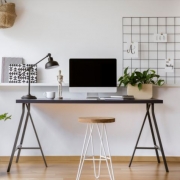
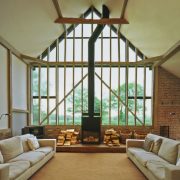
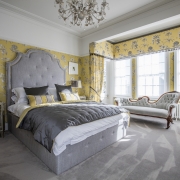

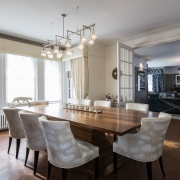
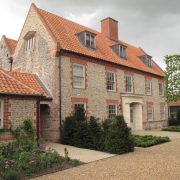
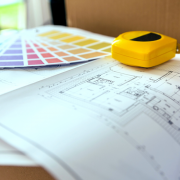





Leave a Reply
Want to join the discussion?Feel free to contribute!